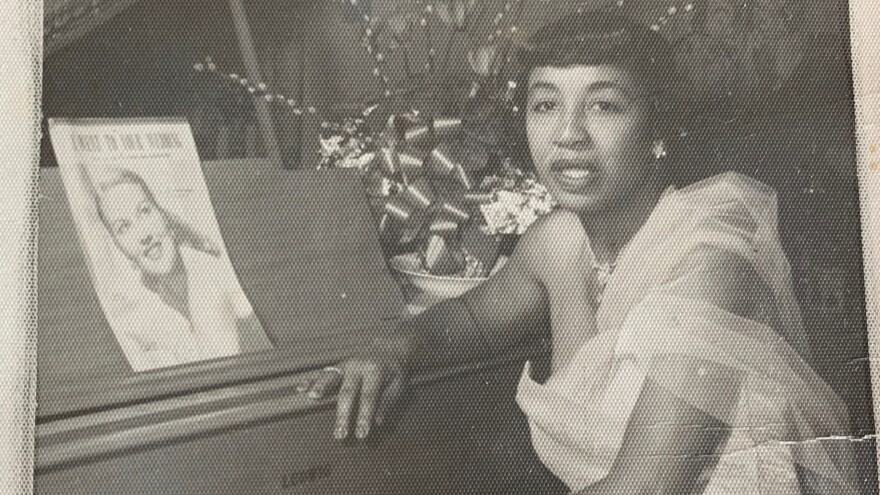Many may know Wanda Jackson's 1960s hit "Let's Have a Party," or even the versions performed by Led Zeppelin and Elvis Presley, but most will not recognize the name of the woman who wrote it: Jessie Mae Robinson.
Whether she was composing party songs or heartbreak songs, Robinson wrote with the concise, evocative language of a journalist. She gave her characters dignity no matter who they were or what they were doing.
Born in Texas in 1918 and raised in California, Robinson's songs have been recorded by hundreds of artists, from Louis Jordan to Lana Del Rey.
Growing up in the Watts neighborhood of Los Angeles, Robinson found a supportive community, and plenty of opportunities to explore her creative interests. She became a champion tap dancer, competing at the old Largo Theater. As a teenager, she wrote a column for the California Eagle newspaper. She earned an Actors' Equity card, performing in WPA musicals like Show Boat.
But Robinson also had a penchant for making up melodies and writing poetry. She was encouraged to become a songwriter by neighborhood friend Joe Adams, who'd go on to manage Ray Charles and Dootsie Williams. Williams owned a local studio, where Robinson got her songwriting start. She caught a break in 1945, when a young Dinah Washington released "Mellow Mama Blues."
Robinson was an African American woman working mostly on her own in the 1940s and 50s, but she challenged a music industry determined to pigeonhole her into writing only blues and R&B. She loved Tin Pan Alley and show tunes, and refused to be confined by genre.
In 1952, Robinson had her first pop music crossover success when Patti Page recorded her song, "I Went To Your Wedding," about watching the love of your life marry someone else.
A self-taught musician, Robinson wrote songs even when she had no access to an instrument. She'd hum melodies into a tape recorder, and scribble lyrics on random pieces of paper. She didn't learn to drive until age 30, so early in her career, she'd take a bus to Hollywood, and have her songs transcribed onto sheet music that the studio musicians could read.
In the early 1960s, Robinson started her own record labels, naming the first one after her daughter, June. Though she loved music, Robinson had grown tired of the industry. She was physically tired, too. Robinson's health was in decline, and in 1966 she sought treatment for a chronic throat problem. The doctors suggested surgery, but she said no, fearful of permanently losing her voice.
Robinson died in 1966 at age 48, leaving behind a body of work that reflects who she was: soft-spoken yet self-possessed, imaginative and ambitious. She was a uniquely gifted composer with an eye for detail that most people overlook and the ability to pack so much emotion into just a few words.
Copyright 2021 NPR. To see more, visit https://www.npr.org. 9(MDAxNzg0MDExMDEyMTYyMjc1MDE3NGVmMw004))







